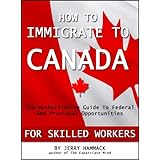Now that I am a permanent resident of Canada, the next step in my journey, abet, another year down the line, is to apply for citizenship. To start, at least, I anticipate being a dual citizen of both Canada and the United States.
In Canada, according to the CIC web site, a person may have several citizenships at the same time. For example, a person who was born in a country other than Canada, who applies for citizenship and is naturalized in Canada, and then naturalized in a third country may be a citizen of all three countries.
Dual citizenship may carry with it certain benefits, but it may also bring unexpected difficulties: legal proceedings, taxation and financial responsibilities, military service, denial of emigration, even imprisonment for failure to comply with obligations in one of your countries of citizenship.
On becoming a Canadian citizen, certain rights and responsibilities are inherited. They include:
- Freedom of conscience and religion
- Freedom of thought, belief, opinion and expression, including freedom of speech and of the press
- Freedom of peaceful assembly
- Freedom of association
Under the 1982 Charter of Rights and Freedoms, Canadian citizens are guaranteed:
- Mobility Rights — Canadians can live and work anywhere they choose in Canada, enter and leave the country freely, and apply for a passport.
- Aboriginal Peoples’ Rights — The rights guaranteed in the Charter will not adversely affect any treaty or other rights or freedoms of Aboriginal peoples.
- Official Language Rights and Minority Language Educational Rights — French and English have equal status in Parliament and throughout the government.
- Multiculturalism — A fundamental characteristic of the Canadian heritage and identity. Canadians celebrate the gift of one another’s presence and work hard to respect pluralism and live in harmony.
In Canada, rights come with responsibilities. These include:
- Obeying the law — One of Canada’s founding principles is the rule of law. Individuals and governments are regulated by laws and not by arbitrary actions. No person or group is above the law.
- Taking responsibility for oneself and one’s family — Getting a job, taking care of one’s family and working hard in keeping with one’s abilities are important Canadian values. Work contributes to personal dignity and self-respect, and to Canada’s prosperity.
- Serving on a jury — When called to do so, you are legally required to serve. Serving on a jury is a privilege that makes the justice system work as it depends on impartial juries made up of citizens.
- Voting in elections — The right to vote comes with a responsibility to vote in federal, provincial or territorial and local elections.
- Helping others in the community — Millions of volunteers freely donate their time to help others without pay—helping people in need, assisting at your child’s school, volunteering at a food bank or other charity, or encouraging newcomers to integrate. Volunteering is an excellent way to gain useful skills and develop friends and contacts.
- Protecting and enjoying our heritage and environment — Every citizen has a role to play in avoiding waste and pollution while protecting Canada’s natural, cultural and architectural heritage for future generations.
In future posts, I'll discuss a threat to dual citizens posed by the Harper Government, which proposes to create two classes of Canadian citizens - natural and foreign-born.
If you're a permanent resident of Canada, I want to encourage you to learn about becoming a citizen. I've been taking mock tests for years, myself!
Start your journey to Canadian citizenship here



No comments:
Post a Comment